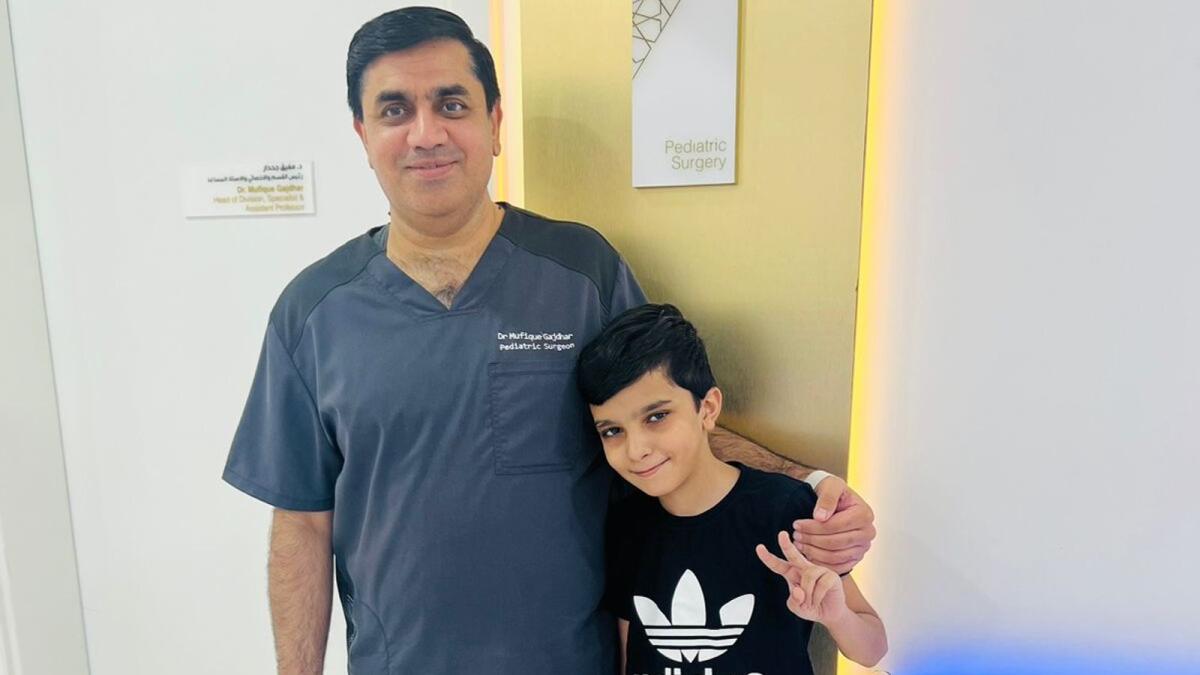Sheikh Hasnain Faizan, a ten-year-old boy, experienced pain in his lower body, initially dismissed as growing pain, turned out to be a rare condition in his male reproductive organ. Despite the discomfort, Sheikh had trouble communicating his symptoms fully. Eventually, his testes twisted, leading to the possibility of having to remove them. Following successful surgery at Thumbay University Hospital, Sheikh’s family learned the importance of open communication with children regarding their bodies and health. Sheikh had to make adjustments in his academic and physical activities post-surgery but has been coping well with the recovery process.
Parents play a vital role in monitoring their child’s genital development. Dr. Mufique Gajdhar, a pediatric surgeon at Thumbay University Hospital, emphasized the importance of promptly consulting a pediatric surgeon if any abnormalities are noticed in a child’s genital development. Undescended testes, a condition in which one or both testes do not descend into the scrotum, can lead to severe consequences if left untreated. Complications such as torsion, where the testes twist upon its blood supply, can result in testicular necrosis if not addressed urgently. Early detection and intervention are crucial in ensuring optimal outcomes for children affected by this congenital anomaly.
Maryam Faizan, Sheikh’s mother, stressed the need for parents to actively observe and discuss any changes or discomfort their child may be experiencing, no matter how uncomfortable the topic may seem. Following Sheikh’s surgery, the family has been providing emotional support and reassurance to help him cope with the recovery process. Sheikh had to temporarily give up his favourite sport, football, and focus on soft movements and low-impact activities as advised by his healthcare practitioner. The experience has brought about major changes in Sheikh’s everyday life but has also highlighted the importance of vigilant monitoring and proactive medical care when it comes to children’s health issues.
It is crucial for parents to maintain open communication with their children regarding their bodies and health. Sheikh’s experience underscores the significance of actively observing and discussing any changes or discomfort a child may be experiencing, even if the topic may seem uncomfortable. Neglecting undescended testes can lead to severe consequences, as seen in Sheikh’s case, where his untreated condition resulted in complications such as torsion. Early detection and intervention are key in safeguarding a child’s reproductive health and overall well-being. By addressing undescended testes at an early age, the risk of complications can be significantly reduced, ensuring optimal outcomes for young boys affected by this condition.
Dr. Gajdhar highlighted the importance of prompt surgical correction for undescended testes, ideally within the first six months of age. Neglecting this condition can lead to severe consequences, including torsion, which can become a medical emergency. Without urgent intervention, compromised blood flow can result in testicular tissue death, necessitating surgical removal. Sheikh’s case serves as a reminder of the critical role of early detection and intervention in preventing such complications. Parents should be vigilant in monitoring their children’s genital development and seek medical advice if any abnormalities are noticed to ensure the child’s reproductive health and overall well-being.











